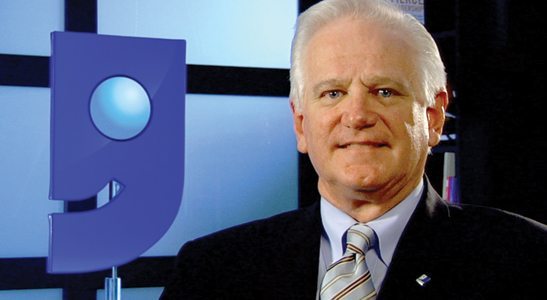Jim Teter, president and CEO of Goodwill Industries of Central Arizona, discusses how the economic bust has affected Goodwill, why they’ve seen an increase in donations, employment at Goodwill, its future and more.
Jim Teter
Title: President and CEO
Company: Goodwill Industries of Central Arizona
Why did you decide to move to a nonprofit after all your years of success in for-profit industries?
I’ve always had a lot of respect for Goodwill’s mission and Goodwill’s board of directors was looking for a little bit different direction as we continued to grow. They were looking for someone that had business experience because we operate Goodwill like a business, but they also wanted someone who had some nonprofit experience as well. I’ve been involved in nonprofits as a volunteer for over 25 years, but I’ve run larger business operations. I think the board of directors found that appealing. It’s given me a chance to use all my experience to help make a difference for Goodwill. At the end of the day, that’s what it’s about: helping Goodwill be all it can be as we grow and get bigger.
Has the economic bust been a boon for Goodwill?
Because of the nature of what Goodwill does, which is a thrift retail business, we tend to fare a lot better in difficult economic times than most businesses. Up until 2007, we were growing 20 to 22 percent a year. In the years during the recession we’re still growing at 11 or 12 percent a year and reaching thousands and thousands of people and helping serve them. So this has been an opportunity for us to introduce some new people to Goodwill because a lot of people are looking for the values that they find when they shop at Goodwill, so our customer counts are up and our revenues are up. Those are all good things.
Are you seeing a shift in donations?
What we’ve found is that people tend to hang on things a little bit longer. People are not donating quite as much as they did before the recession. But the good news is we have more people donating. Our donation counts are up about nine percent year over year. I think that’s because people know that we are going to get the most value out of their donations, and we help a lot of people prepare for and find work. That’s what we are all about: helping people find work.
How has the increased unemployment rate impacted Goodwill’s goal of putting people to work?
People that are coming in the career centers today are quite diverse in their backgrounds and their experiences. Generally speaking, we still have a lot of entry-level employees that are seeking jobs, but we get a little bit of everything these days. We have people that have college degrees, masters degrees, PhDs. What we offer them is, at no cost to them, a very convenient way to go build resumes, learn skills they didn’t have so they can move into a different industry. A lot of people are finding that attractive and taking advantage of that.
Where do you see Goodwill ten years from now?
We believe we can continue to grow and help more and more people. The only reason we want to be bigger is because we can reach out and serve more people, help more people prepare for and find jobs. I kind of wish we could put ourselves out of business, but I don’t think that’s going to happen. We will be the first thing that comes to mind when people ask, ‘Who can help someone with employment and job training? That’s Goodwill.’ That’s where we would like to be in the next five to ten years.
Vital Stats: Jim Teter
- Joined Goodwill in 2008
- Before Goodwill, was Chief Operating Officer of Calence, LLC in Tempe
- Graduate of Texas Tech University with a bachelor of science degree in industrial engineering
- Has more than 26 years of experience with high-profile corporations such as IBM and Avnet
- Co-chaired South Texas United Way’s business campaigns, served on the Board of the American Heart Association, was an active member of the Corpus Christi Economic Development Corporation and served on the external executive committee for Texas A&I University (now part of the Texas A&M University System)
- Actively supported Respite Care of San Antonio, Hacienda de los Angeles in Phoenix and Paiute Neighbor Association in Scottsdale
- Member of the Association for Corporate Growth, Arizona Business Leadership, Phoenix Community Alliance, Organization for Non-Profit Executives and Greater Phoenix Leadership
Arizona Business Magazine November/December 2011




